When faced with those puppy-dog eyes as you prepare yourself a snack, it can be difficult to resist giving your pet a little tit-bit from the kitchen countertop. And while that wagging tail may feel like reward enough, you could actually be doing your pet more harm than good. Not all food we humans eat is good for dogs, in fact some can actually be dangerous. But then there are also foods we love to enjoy that are perfectly safe as a doggy treat. The problem we dog parents face on a daily basis is to know the difference.
While your dog should really be eating their own dog food and treats kept to a minimum, there is no harm in giving them a little bit of pooch-safe human food once in a while. We take a look at what foods your dog can eat, and which are firmly off their canine menu.
Can Dogs Eat Bananas?
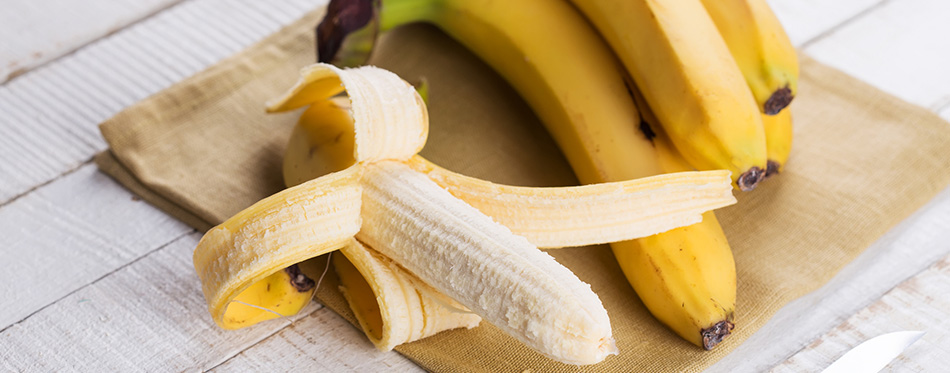
We have started our ‘what can dogs eat?’ guide with one of the safest fruits for canines. Bananas are not toxic for dogs and in fact, can give them a nice little nutrient boost as they are packed with potassium, vitamins B6 and C as well as fiber, which will help to keep their digestion healthy and regular. However, there is also a lot of sugar which if eaten in quantity is not so good for your pet’s health or their waistline. This means that while banana is safe, it should only be given now and again. The best way to serve banana is fresh and uncooked (so no slices of banoffee pie) and peeled. The banana skin is tough for dogs to digest and can cause them a stomach upset, as well as not being that tasty to eat. Portion control is important too – don’t give your dog a whole banana, but in a few bite-sized chunks and as a treat, rather than a regular part of their diet.
Can Dogs Eat Apples?

An excellent source of vitamins A and C, apples are safe to give to your dog, although due to the sugar content, it should be in small quantities, a few small slices at most. Apples are full of nutrients that are good for pooch and his human, including fiber and they are also low in fat. The crunchy texture of an apple slice is also a good way to help keep their teeth clean too. However, there are some essential precautions you need to take when feeding your pet apple as not all of the fruit is good for them. Only ever give them the flesh with the core and all the pips removed as apple pips contain a small amount of cyanide which is toxic for dogs. Also, only give small amounts of apple to your pooch at one time as the sugar can upset their tum if too much is eaten at once.
Can Dogs Eat Blueberries?
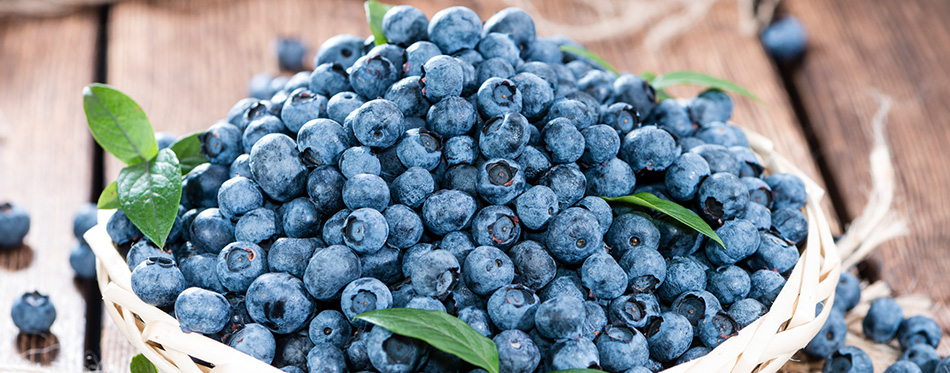
These little blue balls of superfood are just as good for dogs as they are for their humans and so other than quantity, there are no concerns about feeding blueberries to your pet. Packed with antioxidants which can help to protect cells from damage, you also get a decent dose of fiber, vitamin C and phytochemicals – which give the skin such a deep blue color. Altogether, the nutrients in blueberries can help protect your pooch from damaging free radicals and can also help to protect the brain and reduce the effects of ageing on your dog’s cognitive function. Blueberries are safe to give to dogs of all sizes and ages, just supervise when treating your pet, especially if they are puppies as the size of the berry can mean they could be a choking risk. Ways to feed blueberries to your doggo are fresh or frozen and always wash thoroughly to remove any possible pesticides. And go easy, a small handful at most should satisfy their appetite without giving your dog too much sugar.
You may also like our article on the Best Dog Vitamins.
Can Dogs Eat Grapes?
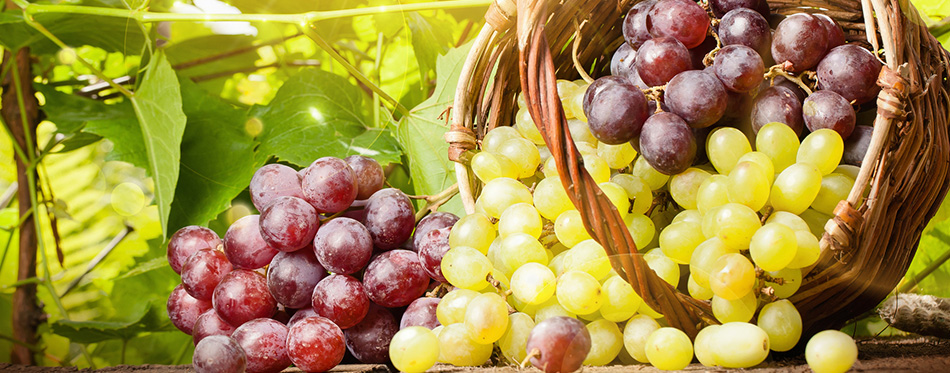
While some fruits can be beneficial to dogs, grapes are firmly on the no list as they can actually be poisonous to dogs. The source of the toxin is not really known but what is clear is that grapes can cause an allergic reaction in dogs, potentially leading to acute kidney failure and in the worst cases, death. And the worrying thing about grapes is how random they can be – while just one grape can prove disastrous for one dog, another may react to a handful, while another dog may only have mild symptoms. However, this means that, as dog owners, you simply cannot take the risk. And it doesn’t just apply to the fresh So that’s cakes, puddings and biscuits containing the fruit, or its by-products are off the canine menu too.
Can Dogs Eat Tomatoes?
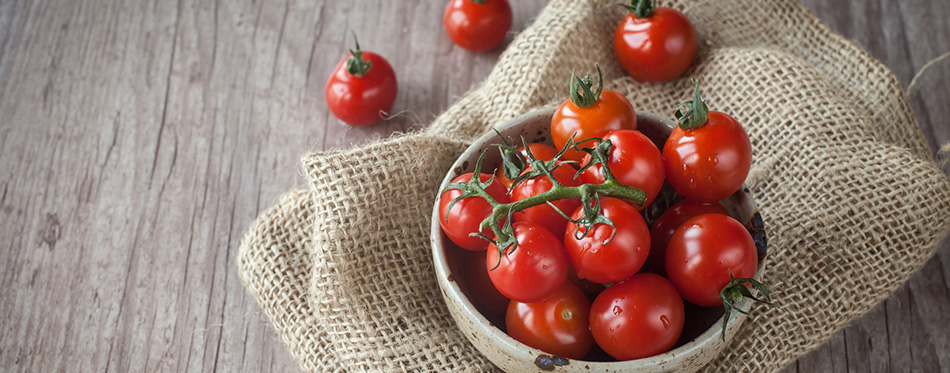
Yes, dogs can eat tomatoes but with some caution. The ripe, juicy flesh of the tomato is a nutrient powerhouse, rich in heart-boosting lycopene, vitamin A for eye health and beta-carotene for the brain. This means tomato can be a tasty snack that can help to maintain a healthy canine. However, the tomato is part of the nightshade family and this is where the problem with the red fruit lies when it comes to your dog. The stalks and leaves of the tomato plant contain solanine, which can be poisonous for dogs if eaten in sufficient amounts. The best way to give your dog tomato is ripe (so not green) with the stalks and any leaves removed and the fruit cut into chunks. And it needs to be the fresh fruit, so not canned or processed in a soup or sauce as these include ingredients such as sugar, salt and spices your dog can simply live without.
Can Dogs Eat Avocado?
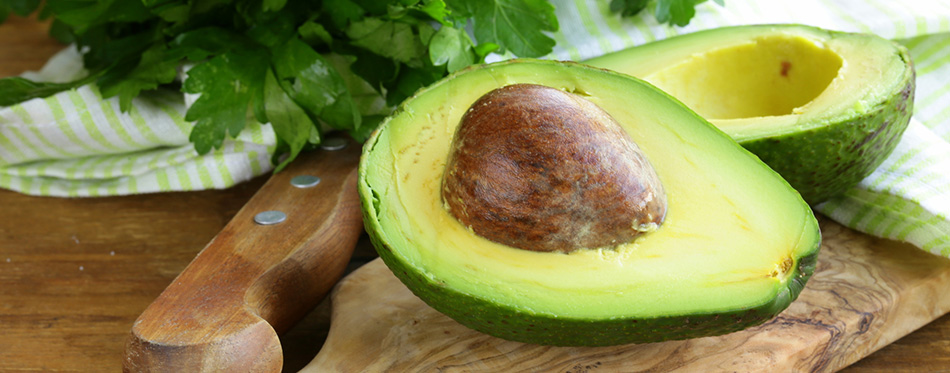
Although considered a superfood (it is packed with good fats, fiber and vitamins), there is one kicker in avocado that makes it unsafe for dogs to eat and it is a toxic compound called persin. This fungicidal toxin can be found not only in the avocado flesh but also the stone, the stalk, leaves and skin and eaten in enough quantities can cause a reaction in your pet, including breathing issues, diarrhea and vomiting. In worst case scenarios, persin can lead to a dangerous level of fluid accumulation around their heart. If that is not enough reason to keep your dog away from the avo, then the high levels of fat can cause pancreatitis in some dogs and the large stone is an obvious choke risk if your pooch happens to get hold on one to chew. As well as the avocado fruit, you should also never give your dog guacamole, as this not only contains avo, but also onions and garlic, which are both known to be toxic for dogs.
Can Dogs Eat Strawberries?
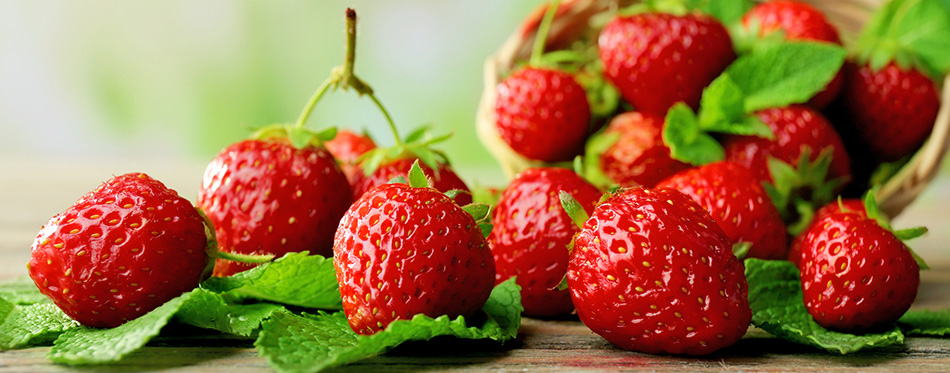
While strawberries are one of the few fruits that are considered safe for dogs, it is important that these sugary fruits are kept to a minimum and only given as a now and again treat. Strawberries are considered low calorie, so that’s good for your dog, but they are also high on the natural sugar scale so could cause health problems if you dog is diabetic or overweight. However, there is a lot to like about the strawberry as a canine treat as they are full of vitamin C as well as antioxidants and the all-important fiber. If you find your pooch is a bit of a strawb-monster then the occasional few slices of the delicious red berry won’t do any harm. But make sure they are fresh strawberries and not canned, as tinned strawberries come packed in a sugary syrup that’s not good for your dog.
Can Dogs Eat Broccoli?
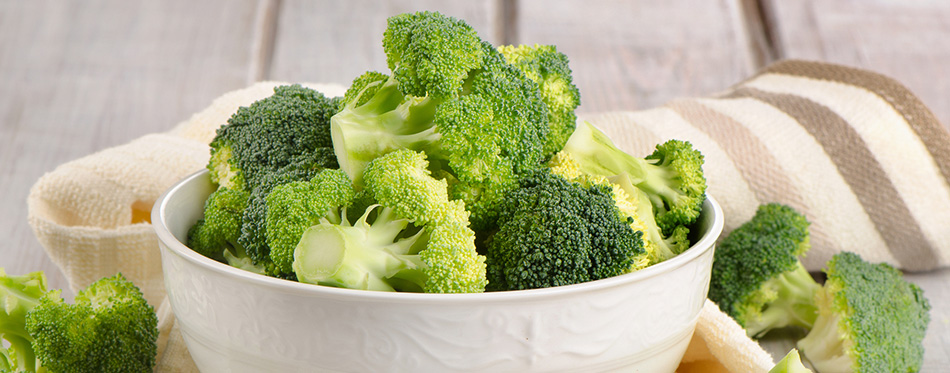
Broccoli is safe for your dog to eat but not too much if your pet is prone to gas! A tasty cruciferous vegetable, broccoli is a nutritious treat for your dog, although as he is not designed to have vegetables as a central part of his diet, it should be limited. Rich in fiber and vitamin C while low in fat, a few pieces of raw or plainly cooked broccoli can help boost his nutrient levels but too much and there could be an issue. This is because broccoli florets contain a compound called isothiocyanate, which if eaten in quantity can really irritate their digestive system and nobody likes an overly gassy dog. If you want to give your dog cooked broccoli, keep it plain, so no extra butter or salt. And avoid giving him broccoli if it comes in a sauce.
Can Dogs Eat Carrots?
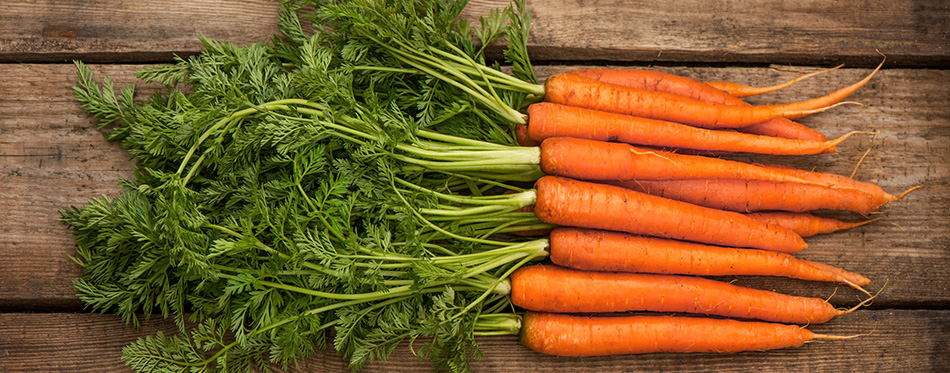
Another key vegetable on the safe for dogs list, carrots are not only healthy but can also help to keep your dog ‘regular’ and their teeth clean. The crunchy texture of carrots is also good for puppies as they teeth into their adult gnashers. Nutritionally, carrots provide a host of essential vitamins and minerals, including potassium and vitamin A as well as fiber. It’s ok to give your dog raw carrots, just take a little time to wash them first to remove any possible pesticides and cut them into chunks, sized for your dog. For older dogs who may have teeth or chewing issues, steamed or microwaved carrot pieces can also be a good idea. In short, carrots are a safe and tasty treat or reward for your pet. As a final tip, do monitor your dog when first giving them carrot as a treat to see how they react and if any doubt, chat to your vet.
Can Dogs Eat Eggs?
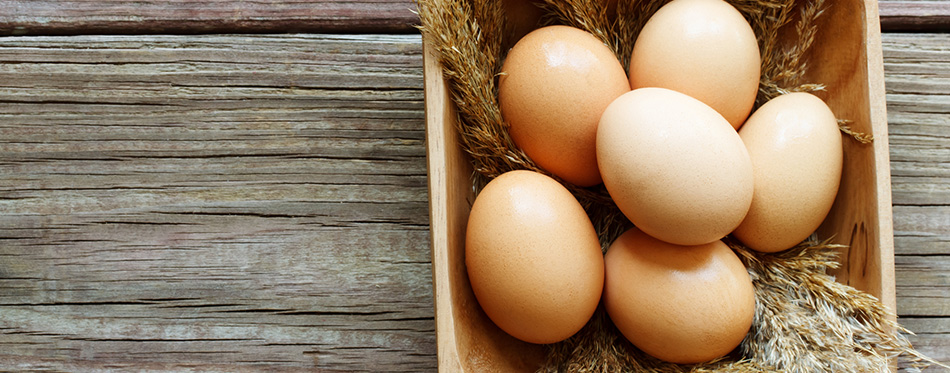
Yes, dogs can eat eggs but never raw. As an excellent source of protein as well as a host of vitamins and minerals, eggs can be beneficial to your dog. Yes, they do contain cholesterol, but not in quantities that should concern you as long as they are not eating multiple whole eggs at once. Plus, they also contain riboflavin, for energy release and selenium which is needed for heart health. But with eggs, there is one big rule – never feed them to your dog raw. Raw eggs can cause salmonella or E.coli food poisoning, which can also be transferred to humans. Raw egg whites can also lead to a deficiency of biotin, a B vitamin needed for healthy metabolism. Scrambled or boiled and chopped are the best ways to treat your dog with an egg, but the key word is ‘treat’, as eggs are high in calories so they should not be fed to your pooch too often.
Can Dogs Eat Cheese?
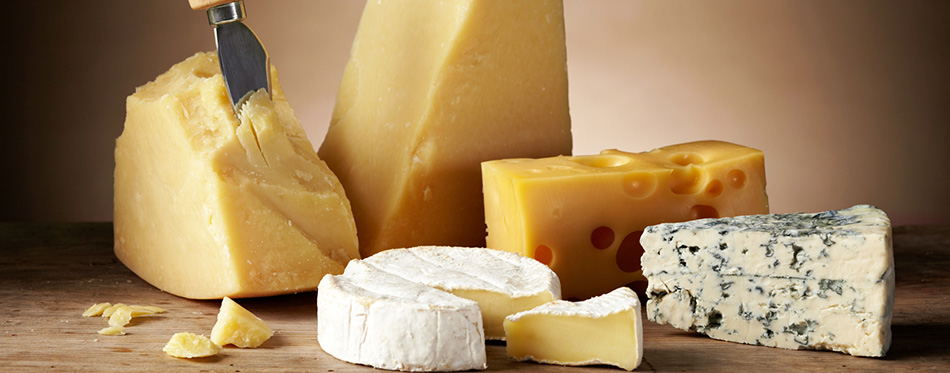
Cheese can be given to your dog as a treat, but you need to be sure your pet is not lactose intolerant. If your pooch can happily tolerate dairy, then a little bit of cheese used as a training reward or an occasional treat can put the wag into their tail. But it cannot be any cheese – only plain, straightforward cheese such as Swiss or Cheddar will do. This is because these types of cheeses contain lower levels of lactose, which your dog’s system should be able to tolerate. Fancier or creamier cheeses such as brie or mozzarella can cause stomach upsets, while blue-veined cheeses should be avoided altogether. And make sure the cheese is plain and doesn’t contain added ingredients such as onion, garlic, spices or dried fruit, as these can be harmful to your pet. Nutritionally, plain hard cheeses contain calcium as well as vitamins which can be good for your dog, although they also contain high levels of fat, so moderation is key.
Can Dogs Eat Onions?
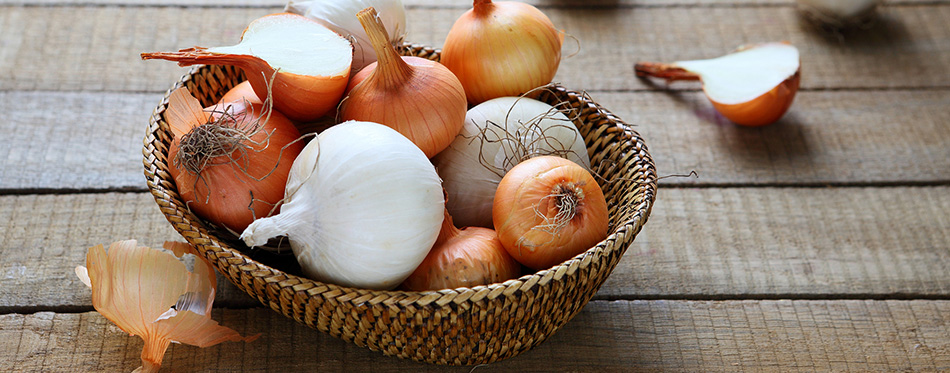
When it comes to food that should not be fed to dogs, onions are right at the top of the list. Onions can actually be toxic for canines and this is primarily due to a substance that onions contain called N-propyl disulphide. Unlike humans, your pooch doesn’t have the right enzymes to safely break down this compound, meaning it can build up in his body to dangerous levels. The result can be a condition called ‘Heinz Body Anemia’ which can be fatal. Symptoms of the condition include vomiting, diarrhea, discolored urine, jaundice and breathing difficulties, so if you suspect your dog has eaten onions, get them to a vet pronto.
You also need to exercise caution when your dog is around the kitchen or as you eat your food as onions are in so many of our dishes, from pizzas to pasta sauce. Garlic, leeks and chives are off the dog menu too as they are all part of the onion family.
Can Dogs Eat Popcorn?
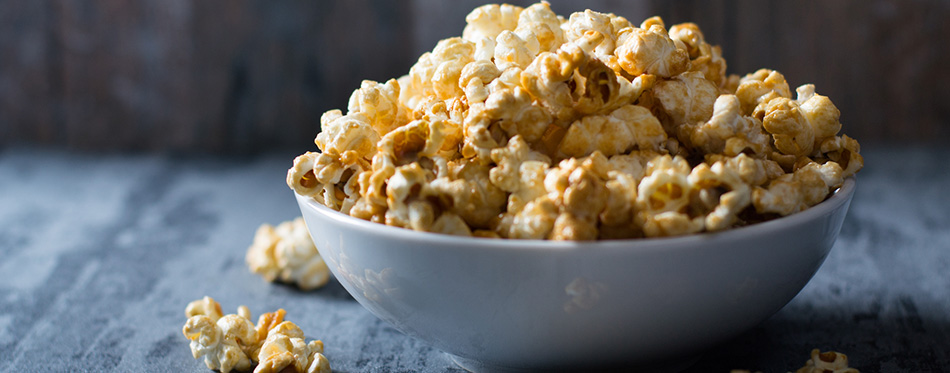
Popcorn is generally considered to be safe for dogs but only the plain variety. Popcorn is one of our favorite snacks and so it can be tempting to sneak a few to your puppy-eyed pet as you settle back to watch a movie or sports match. But just as we humans like to load on the butter, caramel, sugar, salt or flavored popcorn toppings, these all just make them a no-no for your pooch. However, plain, air-popped popcorn can be ok for your dog and actually contains some ‘good stuff’ such as riboflavin and thiamine, which can help their eye and digestive health. Only ever give popcorn that has fully popped as those sharp corn kernels can catch in their throat. Ideally any snack or treat you give to your dog should be formulated for canines but if you do feel the need to give them popcorn, make sure it is only a few fully popped pieces as a very occasional treat.
Can Dogs Eat Watermelon?
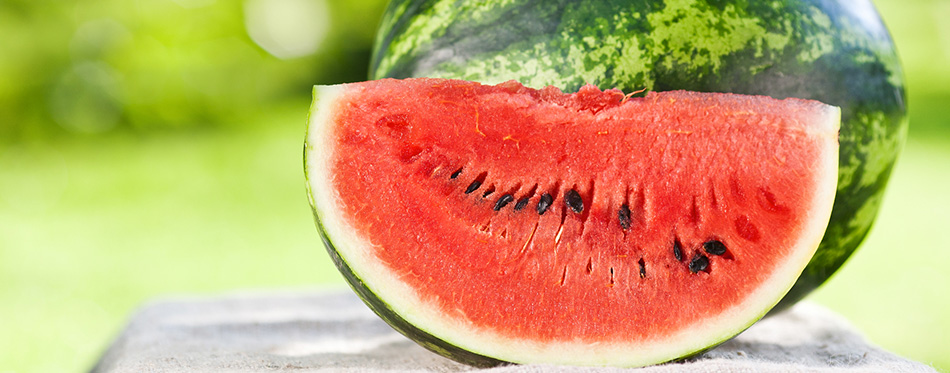
As the name implies, watermelons have a very high-water content which means they can make a super-refreshing snack for your pet, especially on a hot day. And while there’s nothing in the juicy fruit that can harm your dog, there are a few things you need to avoid. Always remove the watermelon rind as this is super tough and can get caught in your dog’s throat. The watermelon seeds should also be removed from the flesh before feeding to your dog as they can irritate their gut if eaten. To be safe, only ever feed your dog small chunks of rindless, seedless flesh but not too much as watermelon does contain sugar. However, there is also a good dose of vitamins A, B6 and C, as well as fiber and potassium which can do your dog some good. A top tip is to part freeze small watermelon chunks and give a couple to your pooch as a delicious treat.
Can Dogs Eat Pineapple?
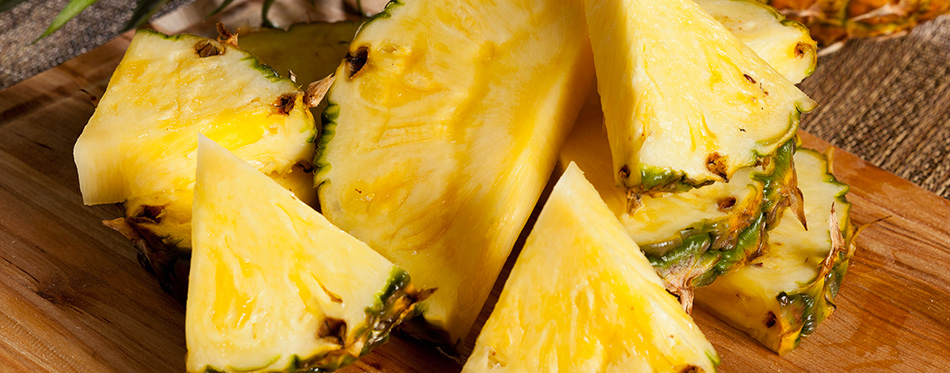
Pineapple should only ever be an occasional treat for your pooch. While there is nothing in the fruit of the pineapple that is toxic for dogs, the concern is the very high sugar levels in this tropical fruit. This means that pineapple is safe to give to your dog, but we strongly recommend that it is a very occasional treat. Too much sugar is not good for your pooch’s health, especially if they have diabetes and it can also lead to tooth decay and obesity. The sweetness in pineapple can also irritate their digestive system if they eat too much. The good news is that along with all that sugar, there are nutritional benefits, including vitamin C and iron. However, you should take care in prepping the fruit if you are thinking of giving a little bit to your pet. Only ever give them fresh, raw pineapple, flesh only with all that woody core and tough rind carefully removed. And never give them canned pineapple as it is packed in sugary syrup.
Can Dogs Eat Almonds?

Although almonds are not as toxic for dogs as some other nuts, they really should to be on their ‘don’t’ eat’ list. First up, the size of almonds can be a choke hazard as they can block their windpipe or cause irritation and tears to their esophagus if swallowed whole. Almonds are also pretty tough for your dog to digest and can cause them intestinal problems, such as gas, diarrhea and discomfort.
Salted almonds in particular, or almonds seasoned with spices, garlic or chili are particularly problematic for canines as they can raise sodium levels in your pet’s body and cause water retention. Water retention can be potentially fatal for dogs suffering from heart disease and even in a healthy dog is a condition you want to avoid. And all those added seasoning and spices can be poisonous and have no place on your dog’s diet plan.
Can Dogs Eat Celery?
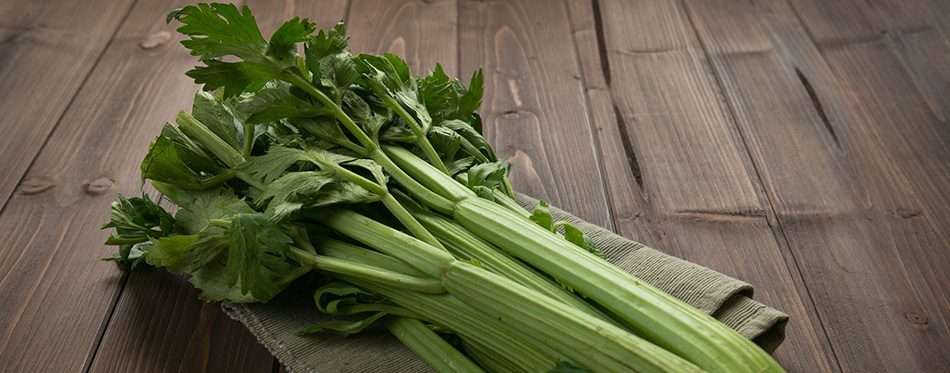
While celery is a healthy food that is considered safe for dogs, there is one issue you may have if you feed your pet this crunchy, green veg – they may pee more than usual. With its high-water content and distinct flavor dogs seem to go for, your dog may eat too much, leading to an increase in urination. So, if you do want to treat your celery-loving pup, then make it an occasional snack and don’t give them too much! But it should only ever be appropriately sized chunks of the vegetable flesh, without the leaves, and washed to remove any potential pesticides. Otherwise, celery is a pretty healthy veg for your dog, as it is very low calorie and is packed with fiber as well as vitamins A, C and K, which is particularly good for their bone health. Oh, and celery can help to freshen that doggy breath too!
Can Dogs Eat Bread?
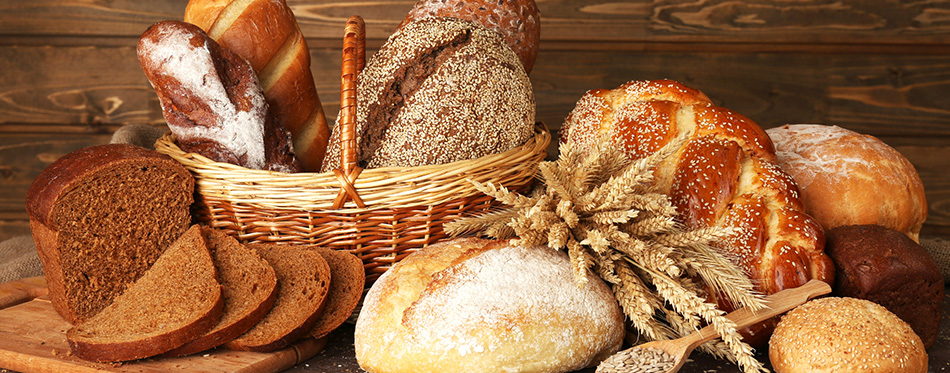
Your dog can have bread but in moderation. Bread is not a natural food for canines, so the first step is to avoid your doggo developing a taste for it. There are other more dog-appropriate snacks out there and other than fiber, there’s no real nutritional case for giving your dog bread. However, if your dog does eat some bread, then unless he has a wheat allergy then plain white or wholemeal bread will be safe for him. But the key word here is ‘plain’ as added ingredients such as raisins, onions or spices are not dog-safe. And be extra careful when your dog is around if you are eating a sandwich as the filling could be a problem too. It is important to also highlight that while baked, plain bread is generally safe for dogs, raw dough is not and this is due to the active yeast, which can continue to rise in their stomach and lead to alcohol toxicosis, which can be dangerous to your dog’s health.
Can Dogs Eat Tuna?
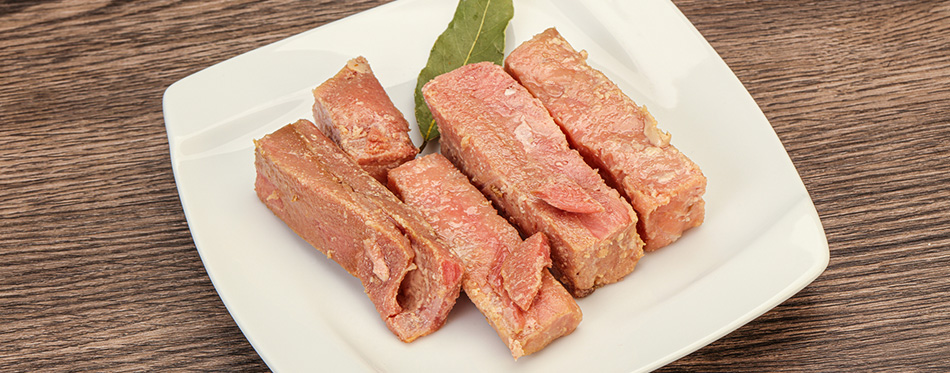
You should always exercise caution when considering tuna as a treat for your dog. And this is because like many other saltwater fish, tuna can contain mercury, which can actually be toxic for your dog. The risk with tuna is that due to its large size, it can contain higher levels of mercury than say, salmon. The mercury comes from environmental pollution and can be poisonous if eaten in sufficient quantities; typical symptoms of mercury poisoning include tremors, kidney damage, vomiting blood and disorientation. Although tuna is sometimes added to dry and wet dog food – it is an excellent source of omega 3 oils, iodine, selenium, plus vitamins and minerals – the American Kennel Club advises against giving tuna to your pet. It is best to exercise caution when considering giving tuna to your dog and perhaps look at other, safer fish instead. But if your dog does sneak a little tuna from your plate, there’s no need to worry – just observe them for any reactions or symptoms and seek veterinary advice if in any doubt.
If you are looking for more options, check out our guide on Fish Oils For Dogs.
Can Dogs Eat Turkey?
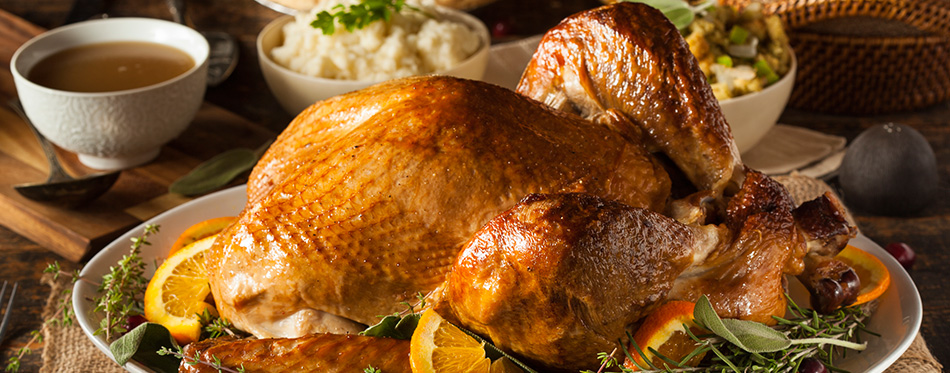
As a healthy source of lean protein, turkey can be a tasty snack for your dog; in fact, it is often the protein source in wet and dry dog foods you can buy. And there’s a good roll-call of nutrients in turkey that can benefit your pet, including phosphorus and riboflavin, which is good for their metabolism and energy release. Turkey is also low fat so makes a good alternative treat to other fattier foods. But there are a few rules when it comes to how to serve turkey to your canine. First up, it needs to be cooked thoroughly as raw turkey can lead to food poisoning in your dog, not pleasant for all concerned. And it must be plain, so no extra butter, seasonings, stuffing or garnishes such as onion, garlic or spices which can be harmful to your dog. And, finally it should only be the cooked meat, so no bones as these can easily splinter and get stuck in your dog’s throat.
Can Dogs Eat Yogurt?
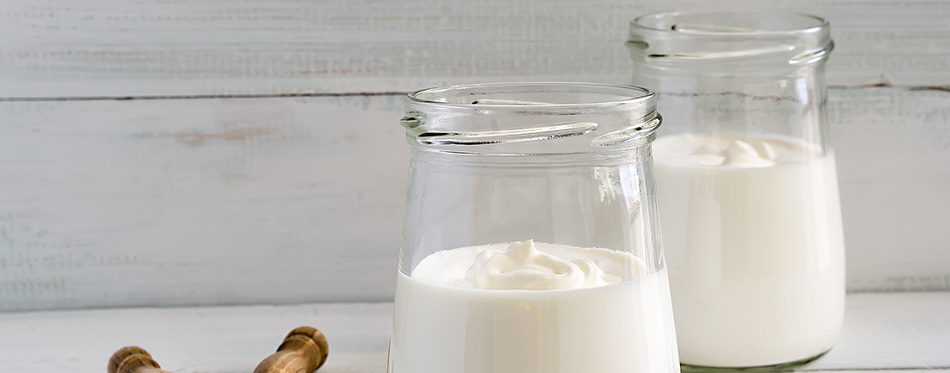
Yoghurt is ok to give but it does depend on your dog. Dairy products can be a problem for many dogs, due to their inability to digest lactose, the natural sugars contained in milk. However, yoghurt tends to buck this trend due to the active bacteria it contains which helps to make it easier for dogs to digest. Yoghurt also contains bone and teeth-boosting calcium and is also a good source of protein and can help to settle an upset tum, thanks to the probiotics that yoghurt contains. However, there are a few risk factors when it comes to yoghurt, namely the added ingredients it can contain. Artificial sweeteners, fruit, added sugar, nuts or chocolate can take yoghurt from the safe to the no-go list when it comes to your dog. So, if your pet has a taste for the creamy stuff, it should only ever be plain and unsweetened and in managed small portions as an occasional treat.
Can Dogs Eat Bacon?
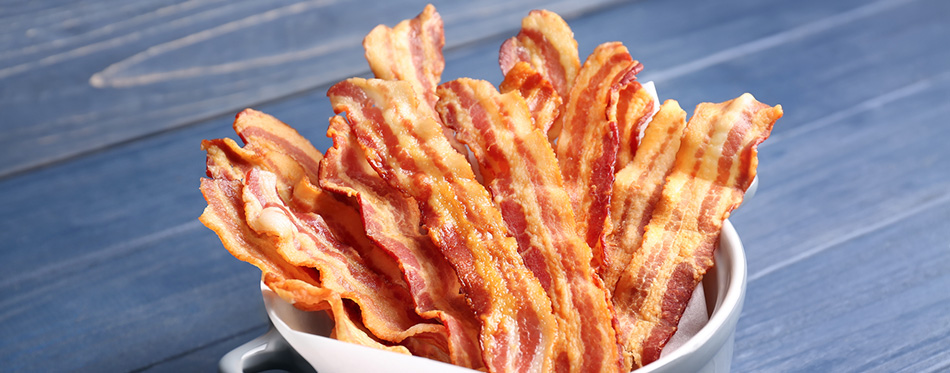
Bacon is one human food that is best kept away from your dog. That delicious smell of bacon sizzling on the grill can set the taste-buds of both dogs and humans drooling, but when it comes to your canine best friend, it should never find its way to their food bowl. Yes, it is a protein (and tastes delicious) but there’s more bad than good to bacon when it comes to your pet. First up, it is very high in fat and salt, both no-nos if you want to keep your dog and their weight healthy. Too much fat and salt and your dog can eventually develop a host of health problems, not least high blood pressure, heart disease and the painful condition, pancreatitis. Even if the bacon is unsmoked, it can also disrupt and upset their digestive system, due to all the fat it contains.
Can Dogs Eat Chicken?
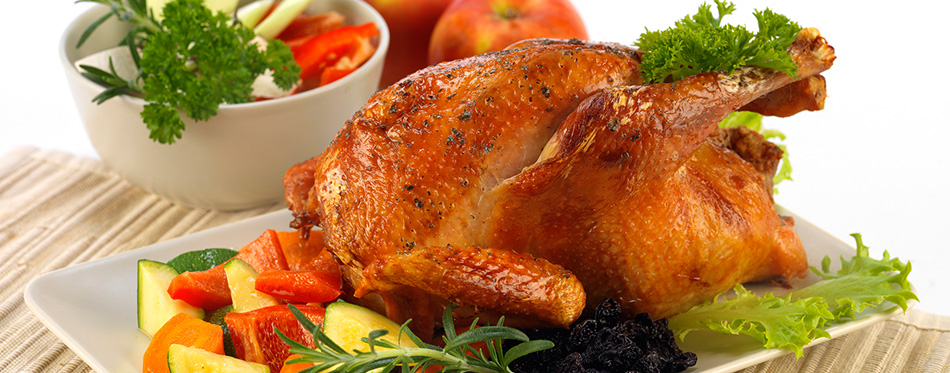
Chicken is an excellent source of lean protein and can be a regular addition to their diet, either as part of their favorite wet dog food or as a tasty snack. However, it must be cooked through properly and never served raw. Raw chicken is a minefield of bacteria for canines and their humans alike and served uncooked will put your pet at risk of contracting salmonella or other, equally unpleasant bacterial infections. To serve chicken to your dog, make sure it is cooked plain (that is with any marinades, spices, salt and pepper) and ideally without the chicken skin left on, especially if your pooch is counting the calories! And don’t give your pet the chicken bones as they are rather thin and can snap and splinter, raising the risk of choking or bone fragments getting caught in your dog’s throat.
Can Dogs Eat Cucumbers?

Made up of 95% water, and low in calories, sodium and fat, cucumber is one of the safest vegetables your pooch can eat and so make a lip-licking juicy snack, especially on a hot summer’s day. This means you get the green light to give your doggo a few pieces of cucumber as an occasional treat and can be used as a low calorie snack in place of their usual dog treats if your pet is on a diet for health reasons or you think he needs to lose some weight. But as with most human foods, this go-head comes with a few caveats. The first being how the cucumber is served to your pet. Never feed a whole cucumber to your dog, as tempting as it is to see the vegetable as a chew. Large pieces of cucumber can get stuck in their throat, and lead to them choking which you don’t want to happen. Instead feed cucumber to your dog in bite-sized chunks that are appropriate to their size and only ever give it to them raw and fresh. Pickle cucumber is a total no-no.
Head over to our review of Vegan Dog Treats for more options.
Can Dogs Eat Shrimp?
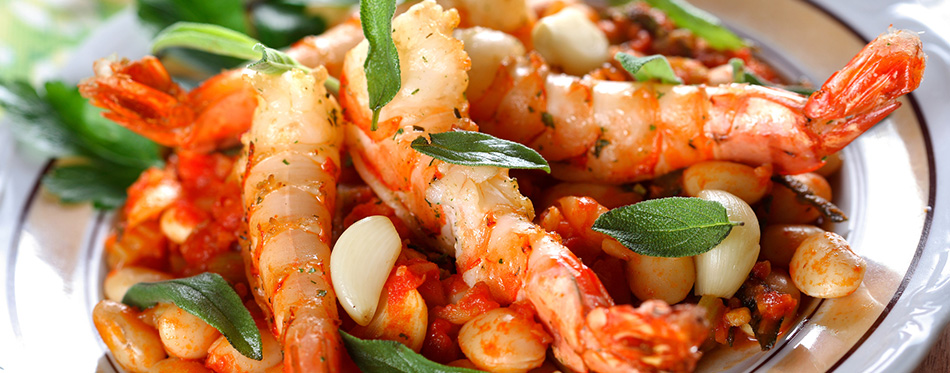
The odd shrimp every now and again can be a tasty treat for your pooch. Shrimps are packed with antioxidants as well as vitamin B12 and B3 (niacin) and are low in fat, carbs and calories so can be a nice little health booster for your pet too. B12 plays an important function in your dog’s digestive health and niacin is needed for effective enzyme function and energy production. The one nutritional downside to shrimp is that it is high in cholesterol, so should be fed in moderation.
However, they should only ever be served to your dog fully cooked and with the shell – including the head, tail and legs – completely removed. Raw, uncooked seafood such as shrimp will contain harmful pathogens which are eradicated by cooking, while the shell can be a choke hazard. But one or two cooked and fully shelled shrimp is a tasty morsel for your dog every now and again.
Source:
- Which Fruits Can Dogs Eat? – PetMD

